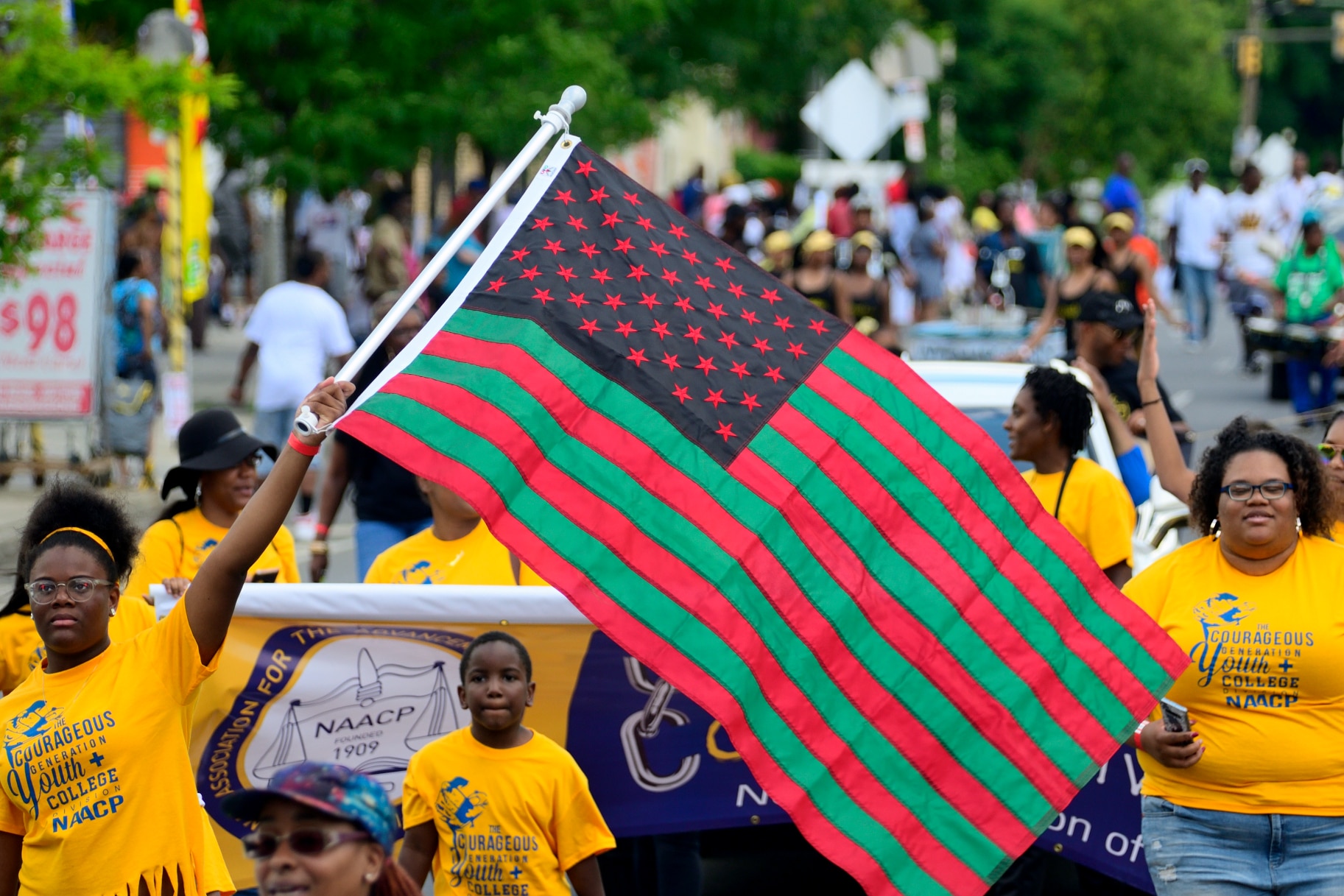Create a free profile to get unlimited access to exclusive videos, breaking news, sweepstakes, and more!
Juneteenth, A Deeply Meaningful Day For Black Americans, Finally Gaining Wider Recognition
Juneteenth commemorates June 19, 1865, the date signifying the end of chattel slavery in the United States. It is now set to become the 12th federal holiday.

This year, the annual late Spring anniversary of the 1865 announcement of the emancipation of enslaved Americans — known widely as Juneteenth — has, at last, gained widespread recognition across the nation and promises to be a major celebration of freedom’s potential in cities across the country as communities reopen after a year of lockdown.
Juneteenth, also known as Freedom Day and Emancipation Day, commemorates June 19, 1865, the date signifying the end of chattel slavery in the United States. This was the day Union General Gordon Granger arrived in Galveston, Texas to inform enslaved Black Americans that the Civil War had ended and President Abraham Lincoln had issued the Emancipation Proclamation, granting freedom to all slaves in the secessionist states. With Texas so far off from the nation’s capital, word spread slowly; Granger's announcement took place more than two years after the Jan. 1, 1863 proclamation. Texas was the last Confederate state to see the end of slavery announced.
Juneteenth 2021 has fresh significance. America is beginning to reopen following over a year of pandemic-related lockdowns and restrictions and has been rattled by multiple police killings of Black Americans, which infused widespread and extraordinary energy into the grassroots movement for Black lives. Amid last year’s massive protests against racial injustice in response to the deaths of George Floyd, Breonna Taylor, and dozens of other Black Americans, Juneteenth gained wider recognition — some have even seen its adoption as a full holiday; as the movement for racial justice ballooned, states and companies made long-hoped for moves to give Juneteenth its proper due.
Now, more Americans appear to be in agreement: According to a poll released by Gallup on Tuesday, nearly 35% of Americans believe that Juneteenth should be a federal holiday; 25% of those polled are against changing the day’s status, and 40% of Americans are undecided on the matter. Among Black Americans, 69% said they support federal holiday status for Juneteenth, while 39% percent of Hispanic adults and 27% percent of white adults agreed.
A total of 49 states and Washington, D.C., recognize Juneteenth as either a state holiday or ceremonial holiday; South Dakota still has not recognized the holiday. On Tuesday, the Senate finally passed a bill that would honor Juneteenth as a federal holiday; it is expected to easily pass the House vote and will then be sent to President Joe Biden’s desk for his signature, making it the 12th federal holiday — known as Juneteenth National Independence Day. Congress has not established a new national holiday since 1983 when it did so for Martin Luther King Jr. Day.
As this legislation struggled its way through the Senate, the private sector made moves to give Juneteenth its due by allowing staff to take time to reflect and celebrate with a paid holiday. Last year, just over two weeks after Floyd was murdered in Minneapolis by ex-police officer Derek Chauvin, Google circulated a memo asking that meetings be canceled and encouraging staff to take the day to create space for “learning and reflection.” Around then, the NFL recognized Juneteenth as a league holiday and ordered the closing of its office. Nike, Spotify, and Uber are among the companies to give staff a paid day off, while General Motors, Fiat Chrysler, and Ford Motor all announced they would hold moments of silence to recognize the day.
This year, Juneteenth celebrations look to be bigger than ever. Across the nation, educational events and celebrations are planned in cities and towns to celebrate Black American culture and history. In New York, the annual Juneteenth three-day summit is set to begin on Friday morning; the event saw a fourfold increase in attendance in 2020 as it went virtual. At Washington D.C.’s Smithsonian Museum of African American Culture and History, presentations on Juneteenth’s historical significance are set to take place. In Denver, the Juneteenth Festival will feature a kick-off concert, parade, two-day street fair, and multiple Black Pride events. Whether it will be a massive, multi-pronged festival or a solemn or educational celebration, most cities across the country will be holding some sort of Juneteenth event.
The date has been deeply meaningful to Black Americans, and it’s been marked with educational events and celebrations including block parties, cookouts, festivities and reunions. In 1866, it was initially celebrated in Texas via church ceremonies. Over the decades, it spread across the South and grew further as a celebration of Black culture in the 1960s and 1970s. New Juneteenth traditions have sprouted over the years: reciting the works of Ralph Ellison and Maya Angelou, singing the hymn “Lift Every Voice and Sing,” which is widely known as the Black national anthem, and drinking red punch, to name a few.
This year, for Americans who support the movement for Black lives, anti-racism, and social and racial justice, the growth in recognition of Juneteenth represents a concrete continuation of the movement. This begins with education; for the most part, Juneteenth was not part of school curriculums, so many Americans are unaware of the deep meaning the date holds for their friends and neighbors. The Gallup poll also found that nearly half of Americans believe that education about the day’s history should be added to our public schools' history curricula. Until this becomes official, publicly sponsored events, the private sector, and informed Americans will continue to educate their neighbors about this unfortunately overlooked piece of our history.






















